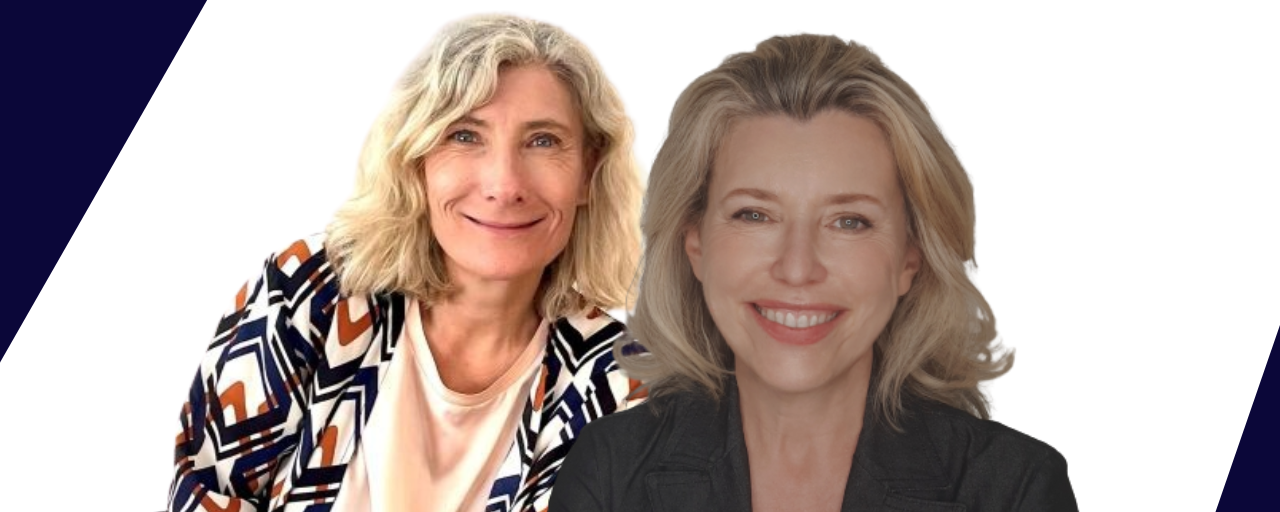Both, passionate about innovation and startups. Both, with a present - and a future - in the world of angels investing. Carolina Gianardi and Silvia Pugi are contributing significantly to the evolution and growth of Italian Angels for Growth, serving respectively as a member of the Board of Directors and a member of the Screening Committee, and following as Champion some projects in which IAG members have decided to invest.
Gianardi, Pugi, how did the interest in this sector arise in you?
Pugi: "I was looking for a high-level training path, I wanted new stimuli and to test myself with something I did not know yet. Startups gave me - and still give me now - the chance to get out of my comfort zone and learn a lot. I chose IAG because I already knew part of the team; I felt comfortable right away. Besides, technology has always attracted me: I consider myself a failed engineer, at the end of high school I was undecided on which faculty to enroll in, eventually economics prevailed but technical-scientific subjects continued to have a certain appeal."
Gianardi: "In 2014 I made my first family & friends investment, I liked it but thought it was better to join a more structured organization. At IAG I knew a lot of people, it was a family environment, so I joined, and it was great to be involved right away with a position on the Screening Committee. An excitement that was further enhanced when President Leone asked me to join the Board of Directors during a dinner. A position for which I am honored."
What has this experience given you back and how has the association changed over the years from your point of view?
Pugi: "In the beginning, coming from the world of large companies, I was inclined to be very critical, to immediately notice what was missing in the startups that presented themselves, leaving out their potential. With IAG, I learned to focus not on what is missing, but on what is there and what could be there. From there, I identified the areas that were most congenial to me and figured out how I could, myself, help these aspiring entrepreneurs grow."
Gianardi: "I approached Angels Investing by focusing on two aspects: knowledge in the target sector of that particular startup and managerial skills, in terms of coaching and support. From the combination of these two elements, comes my real ability to accelerate the growth path of a business. To be able to pull it all together, however, I have learned to prioritize. What does that mean? It means that when you multitask, as in my case, you inevitably have to choose based on the time you realistically have available. I think that's also what it means to be a role model: to show that you don't need heroines or wonder women, but that every woman can engage in challenging paths. Women often fall a step behind not because they don't have the skills, but because they fear they won't be able to give their best for a variety of external causes. The important thing is to choose one's challenges carefully and with the right amount of realism, without fear of not being good enough. Five or six years ago, the presence of women in IAG was limited; now things are changing, perhaps because of this: the Association's women Business Angels have paved the way for others, they have demonstrated with facts that it is possible to engage in this field while having to reconcile multiple dimensions. Moreover, IAG itself has made diversity and inclusion one of its founding values, not only in terms of gender but also age. Diversity is always enriching."
Is diversity also a criterion you follow when evaluating startups?
Gianardi: "We try to make sure that it is, although I would like this aspect to be much more structured at the screening stage. The truth, however, is that we keep encountering startups in which diversity is not as developed. I understand that we are human beings, and that this very aspect restrains the search for diversity: we tend to unite with those who are more like us, we interact with people who are more in line with our culture, but it is precisely from the exchange that value is born. And I reiterate that it is not just about gender. A team reaches its highest quality if it is the result of different experiences, skills, backgrounds and mindsets."
Pugi: "There was a time when teams would show up and I would think, 'Here's another group of bearded 30-year-olds!' Now, you start to see a few more girls, and I'm happy about that. But, as Carolina says, it's not an issue of gender quotas, it's an issue of making room for merit. And we find this problem in startups as well as among business angels: it's hard to find interested women. Probably, we women jump in less, we have less attitude to risk and more fear of failure. That's also why it's crucial to show that it's possible and to get other women to identify with similar paths to ours."
Both of you are Champion of several startups: what convinced you to support these projects in their development?
Gianardi: "I am Champion of only one startup and this choice is dictated by the time available. In fact, I want to have an ongoing dialogue with the startups I follow, also because we often encounter difficulties that it is important to address together. The startup in question is Rentuu: it deals with the digitization of machinery rental, is based in London but is founded by an Italian and runs a fast-growing global technology platform based on the cloud and a franchise network worth billions of pounds. It has offices in 4 countries and over 300 partners in the development pipeline, is part of the Top 100 UK Start-Ups 2019 and has raised over £1.5 million from investors such as Sir Stelios (founder of Easyjet), Pilabs VC, Boost Heroes VC, Italian Angels of Growth, of course, and many others. Being by their side has been challenging from the very first moment: just think, with the pandemic outbreak, the whole event equipment rental side went out of business, and they had to reorganize very quickly. Not only that, but another unexpected difficulty also that tested their resilience was the war in Ukraine: part of the team, in fact, was based there, and the founder's wife herself is Ukrainian. It was very challenging, therefore, both from a human and a business point of view, but they reacted promptly and lucidly by moving the team in a very short time to secure it and to be able to ensure continuity of service. It is for challenges like these that I have become a Champion!"
Pugi: "I, on the other hand, follow 4 startups and I chose them for affinity with the area of expertise and network, a real possibility to accelerate their development and, at the same time, to learn new things. I follow Apical, a booking platform dedicated to those in the travel industry that gives anyone access to the tools they need to create, manage and sell their experiences online in a highly innovative environment, with security and simplicity. Again, Covid was a huge challenge to deal with, generating a 98 percent drop in revenue. Hard choices had to be made, such as leaving people at home. My role has been to make the startuppers understand that at certain times, you have to make decisions like these, which nobody likes, but which are essential to enable the whole enterprise not to close down. Let's say that in addition to being a manager, I have been a big sister, a coach, a friend to them. The second startup I am Champion of is Deliveristo, a dedicated B2B food delivery platform that digitizes the current supply procurement of restaurateurs and chefs by putting them in direct contact with suppliers easily, quickly, and efficiently. When they introduced themselves to IAG, they were not 100 percent understood. They are objectively an atypical team: the two founders come from the Venture Capital world, have backgrounds in engineering and finance. In short, very varied skills. It was precisely from these past experiences that they realized, numbers in hand, that the restaurant industry could be very interesting and so, without knowing it from the inside, they decided to launch a startup in this area. They went in like aliens, now they have honed their potential and have been very good at raising funds. Finally, the third startup that I am Champion of is Futurely, a digital guidance pathway that guides young people in choosing a university and realizing their future. It was born out of a desire to help the younger generation face one of the moments that will have the greatest impact on the rest of their lives. Futurely was developed by two young women, or rather: superwomen! They are Italian, graduates of the Milan Polytechnic, Harvard and MIT. They formed Futurely with the support of Harvard guidance experts, professors and referrals from the best schools in Italy; they created a network of mentors of excellence - young people who have started successful careers in various fields who, moved by the spirit of 'Give Back', accompany students in their university choice, providing their time and professionalism. Awareness, creativity, courage: the educational proposal is developed around these three main drivers. The same ones that convinced me to support the project.
Finally, I am a champion of AWorld, the App that helps people live sustainably. What impressed me most about AWorld is that it is a 100% Italian company, which managed to develop the only App chosen by the United Nations for the ActNow campaign on climate change and sustainability. In just two years they have become the go-to solution for companies that want to incentivize and measure their employees' sustainability actions, and now they are being used by corporations in Europe and the US.
What do you feel like advising the next startuppers who knock on IAG's door?
Gianardi: "Identify the need on which you want to act, ask yourself what the problem is to solve. Today it is as if a startup is not denied to anyone, but you must always start with the 'Why'. Also, it is important to have a mix of skills, to create diverse and multiple teams. You cannot do everything alone and you must always be ready to react to change. Finally, invest in contacts, network, be introduced by the right people to the right people, otherwise you will be a number and it will be harder to make yourself heard. I know this because I myself receive dozens of inquiries every day on LinekdIn, but I cannot answer them all. If, on the other hand, I know the person from whom the request comes to me, it is different."
Pugi: "I agree with Carolina, and this is exactly why I suggest that startuppers find mentors who can accompany them along the way, who can help them do their homework. Teams need to understand what a business angel needs to see to support their project. So if they come to us with a clear and structured path, our support can also be more effective."
And what do you wish IAG?
Pugi: "To celebrate its first 15 years with a good exit and to invest in continuing to grow, becoming more and more relevant and significant."
Gianardi: "I join in! I hope that IAG can start to bring home important results compared to the investments it has made and that in the next 15 years it can become a major player at the European level."








